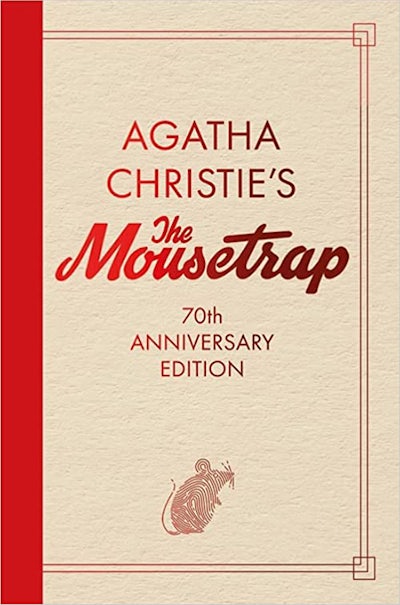
Agatha Christie and Theatre: The Facts
1. In 1954 Agatha Christie became the first, and to this day the only, female playwright to have three plays running simultaneously in London’s West End. These were The Mousetrap, Witness for the Prosecution and Spider’s Web.
2. Agatha Christie’s The Mousetrap is the longest running play of any kind in the world, having first opened in London’s West End 25 November 1952 and continuing to run to this day. 68 years later, it has now been seen by 10 million people.
3. Hercule Poirot first appeared on stage in 1928 in Alibi, Michael Morton’s adaptation of The Murder of Roger Ackroyd.
4. Christie’s first published play was Black Coffee, described by Christie as “a conventional spy thriller,” and starring Hercule Poirot as he solves the case of a poisoned physicist.
5. Black Coffee opened in 1930 and ran for several months at St. Martin’s Theatre, where The Mousetrap was transferred to in 1974 and has been running ever since.
6. The Mousetrap was originally written as a 20-minute radio drama for Queen Mary as an 80th birthday gift, following Queen Mary’s request for a new radio play by Christie.
7. Agatha Christie made her last public appearance at The Mousetrap’s annual party in 1974.
8. Written in 1953, Witness for the Prosecution was Christie’s own favourite play.

9. Over 60 years after it was written, Christie’s play Chimneys received its premiere in Calgary, Canada, in 2003.
10. In 1937 Christie steered away from murder mystery plays and wrote Akhnaton, set in ancient Egypt and focusing on the reign of the Pharaoh Akhnaton. The play was first published in 1973 and never performed in her lifetime.
11. In the four Poirot novels that Christie adapted for the stage, she removed Hercule Poirot, as she was concerned that he would pull too much focus on stage.
12. Christie once wrote, “writing plays seemed to me entrancing, simply because it wasn't my job, because I hadn't got the feeling that I had to think of a play - I only had to write the play that I was already thinking of. Plays are much easier to write than books, because you can see them in your mind's eye, you are not hampered with all that description which clogs you so terribly in a book and stops you getting on with what's happening.”
13. In the 1950s alone, Agatha Christie penned six West End plays.
14. Reflecting on the West End premiere of Witness for the Prosecution, Christie wrote in her autobiography, “I was happy, radiantly happy, and made even more so by the applause of the audience… Yes, it was a memorable evening. I am proud of it still. And every now and then I dig into the memory chest, bring it out, take a look at it and say, ‘That was the night, that was!”
15. When Christie adapted her 1939 bestselling novel And Then There Were None for the stage, she changed the ending to a ‘happier’ one as she was worried the ending would be too bleak to face in the midst of World War II. Both versions are available to be performed.
16. In 1955 Christie won an Edgar Award from the Mystery Writers of America for Best Play for Witness for the Prosecution.
Discover the longest running play in the world

The Mousetrap
For 70 years, Agatha Christie's The Mousetrap has kept millions of people, from every corner of the globe, on the edge of their seats, and it continues to be a sell-out hit of London theatre. This brand new edition of the world's longest-running play will contain a new introduction by Sophie Hannah, bestselling author of the authorised Agatha Christie Poirot continuation novels, as well as the official play script and a host of exclusive material from the show's archive.
The scene is set when a group of people gathered in a country house cut off by the snow discover, to their horror, that there is a murderer in their midst. Who can it be? One by one the suspicious characters reveal their sordid pasts until at the last, nerve-shredding moment the identity and the motive are finally revealed.
Read more articles

Investigating Agatha Christie's Stage Success
Playwright Chris Thompson examines how structure and character make Christie's plays stand out

Agatha Christie, Playwright
Author Peter Swanson shares his appreciation of Christie's plays


 USA
USA 
